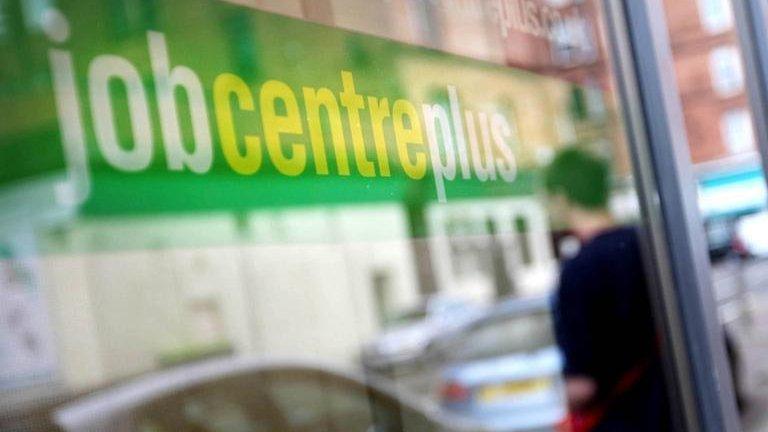Universal credit benefit roll-out '£600m under budget'
- Published
Work and Pensions Secretary Iain Duncan Smith insists the reforms are being delivered under budget
The roll-out of universal credit will cost less than expected and is being carefully delivered "stage-by-stage", the work and pensions secretary says.
Iain Duncan Smith told the BBC the new benefit was £600m under budget and had been implemented gradually on advice.
The benefit begins its phased roll-out, external from Monday, after delays, with the aim of being offered in all job centres in England, Scotland and Wales by 2016.
Labour called it a "failing programme" that would take years to implement.
The scheme has also been criticised by the National Audit Office, external as badly managed and failing to deliver on its targets.
'Waste and delays'
Universal credit combines six working-age benefits - including housing benefit, JSA and tax credits - into a single payment that is currently available, as part of a pilot, in nearly 100 job centres.
From Monday, the government begins a staggered roll-out of the benefit, for claims by single people, at a further 150 job centres. Once this is complete, it will be available in one in three jobcentres in Britain, ministers say.
About 50,000 people in selected areas have claimed the benefit since it was introduced in April 2013 - far fewer than the government originally said would be getting it by now.
Computer problems have also caused delays and forced ministers to write off tens of millions of pounds.

Analysis
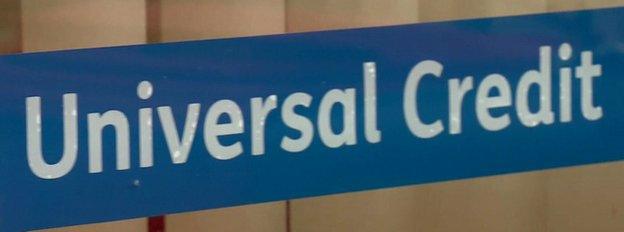
By political correspondent Alex Forsyth
Well overdue and plagued by problems, at one stage the implementation of universal credit was looking fairly hopeless. The work and pensions secretary will therefore be delighted that the national roll-out is finally under way. But universal credit is still some way from being universally available.
Even if it is in all job centres as promised by next year, that doesn't mean everyone will be able to access it. It's being introduced stage-by-stage to different groups - singles, couples then families - to ensure the system can cope with complex claimants.
Given the IT problems of the past this might not be entirely smooth. Iain Duncan Smith says he'd rather get it right - slowly - than rush through a flawed system. So this "national roll-out" is really just the start of what could be a rather long process.

But Mr Duncan Smith told the BBC's Andrew Marr there was always "a certain amount of write-down" when developing IT systems.
"Compared with the expenditure of something in the order of £2.4bn that was originally expected, we're now spending £1.8bn - and included in all of that we'll actually spend £600m less on this development than originally planned," he said.
Asked about delays to the scheme, Mr Duncan Smith said launching benefit changes "all at once" did not go well - remarking on problems faced by previous governments with the introduction of tax credits.
"So we brought in some other people, they looked again at it, they advised me and I took that advice - which was do it stage by stage, test it, then roll it out, then test the next bit, then roll it out, and that's what we're actually doing."

What is universal credit?
An overhaul of the benefits system driven by Work and Pensions Secretary Iain Duncan Smith
It will eventually replace six benefits: Income-based job seekers allowance (JSA), income-related employment and support allowance, income support, working tax credit, child tax credit and housing benefit
Universal credit is tapered so that benefit payments are reduced gradually as claimants earn more
There are no limits to the number of hours claimants can work a week
Ninety per cent of universal credit claims are made online

Meanwhile, government analysis, external released over the weekend suggested claimants in pilot areas were 13% more likely to have found work within four months than similar groups claiming JSA.
But Labour's shadow work and pensions secretary Rachel Reeves said: "The only person who believes Iain Duncan Smith's promises on universal credit is Iain Duncan Smith.
She said it would take "1,571 years" to roll out universal credit to everyone at the current rate, adding: "Labour wants universal credit to work and we'll call in the National Audit Office to do an immediate review of this failing programme to get a grip of the spiralling waste and delays."
Ministers estimate that, once fully implemented, universal credit could boost the economy by £7bn every year because of an increase in people being in work and reduced benefit expenditure.
The Northern Ireland Assembly has also agreed to introduce universal credit.
- Published5 December 2013
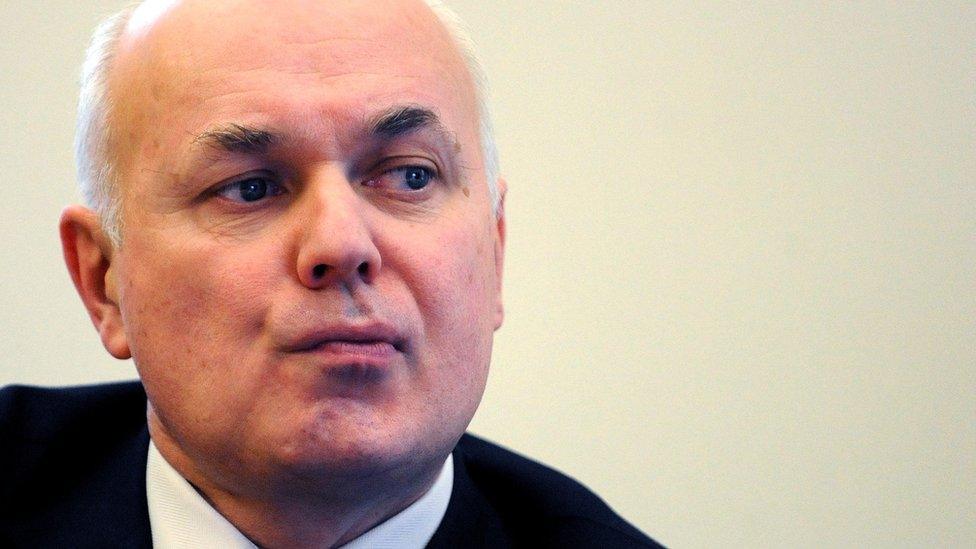
- Published28 October 2013
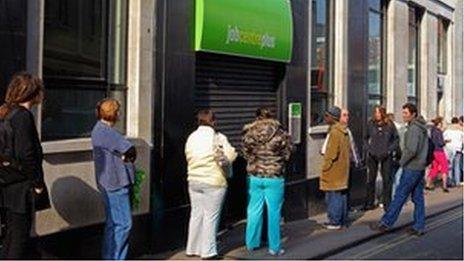
- Published10 October 2012
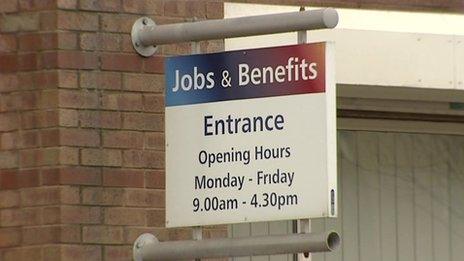
- Published15 February 2015
